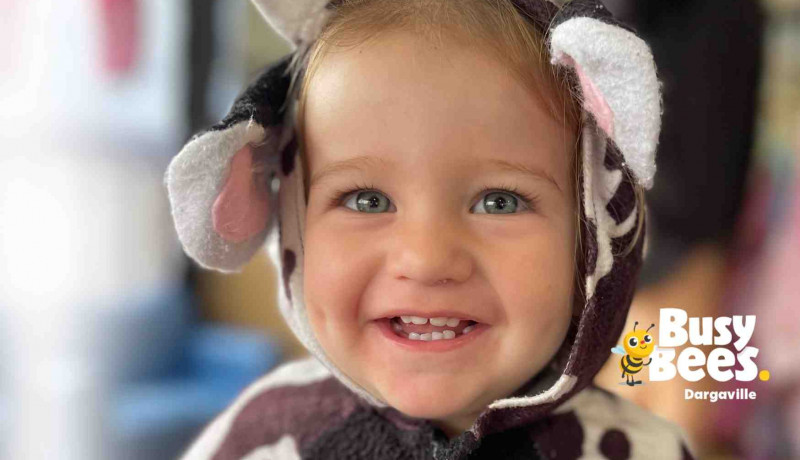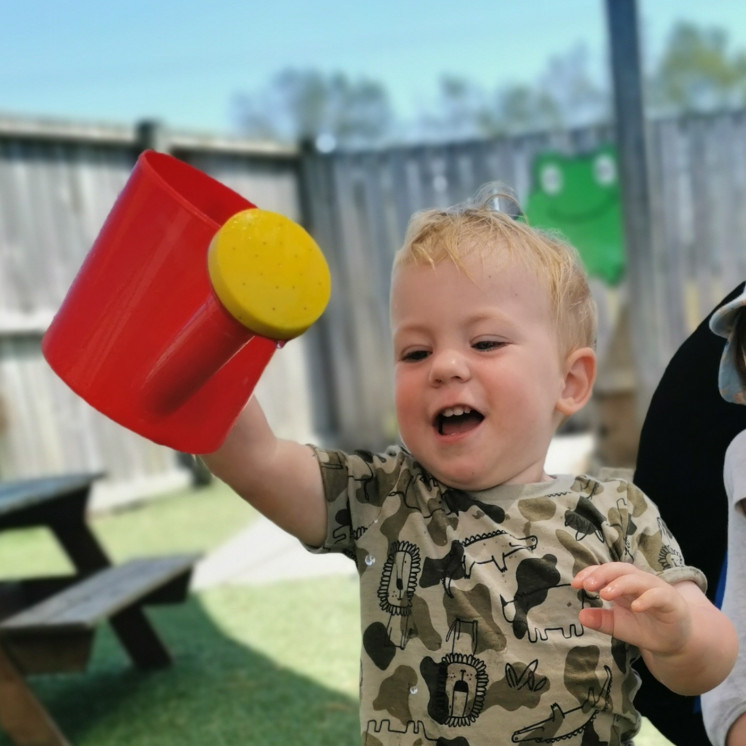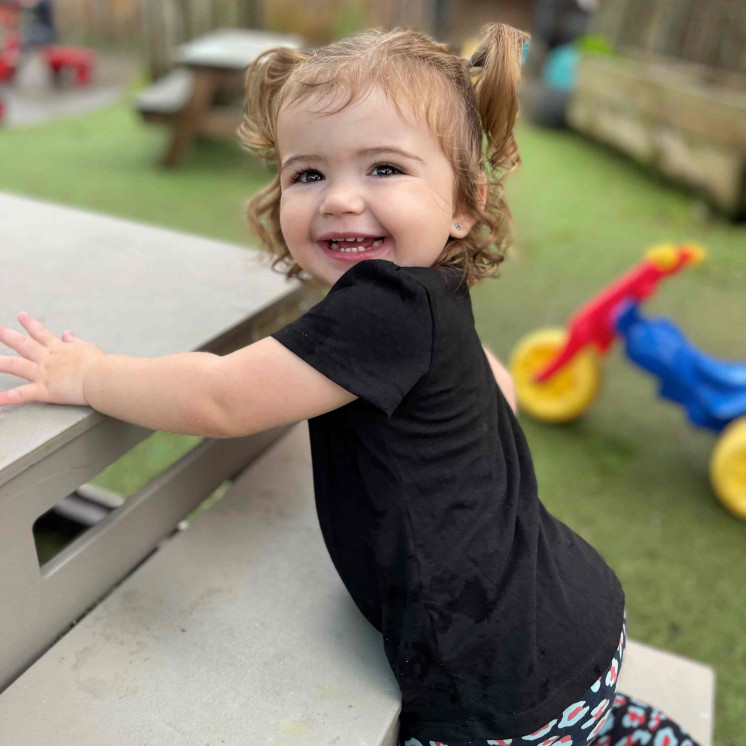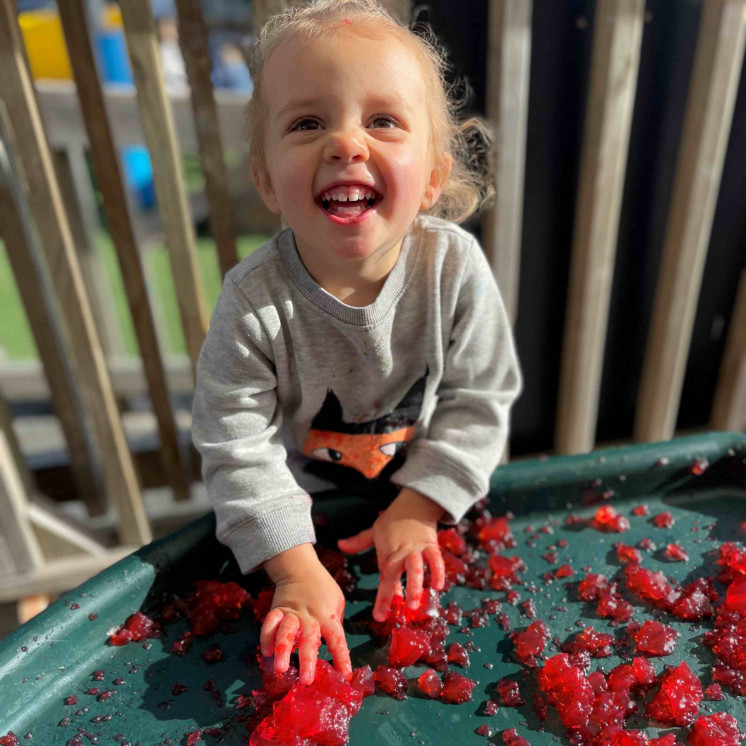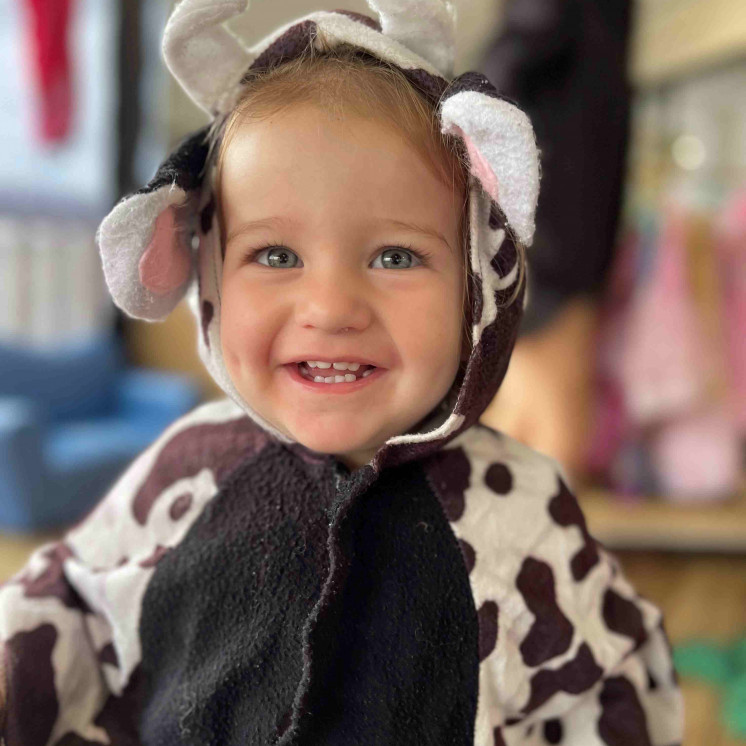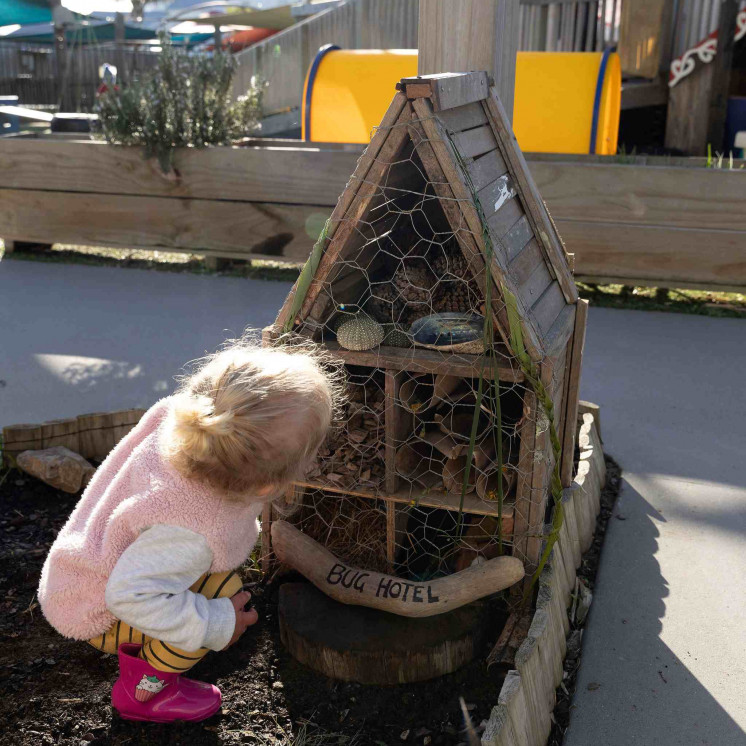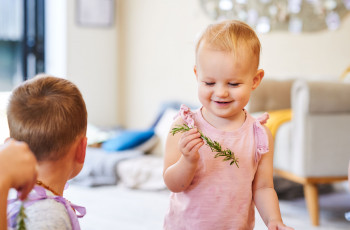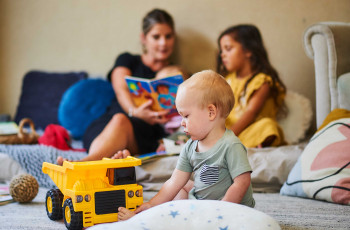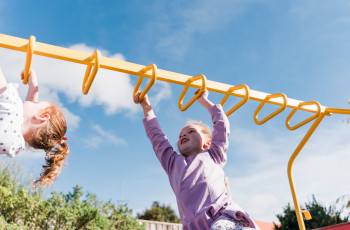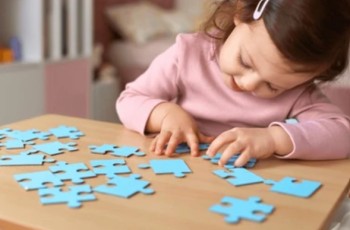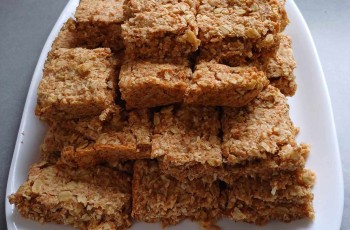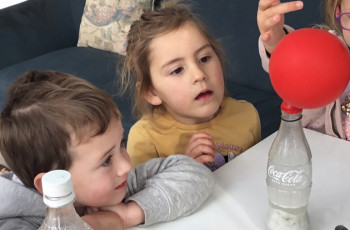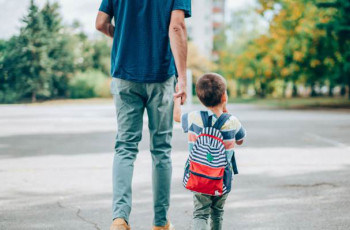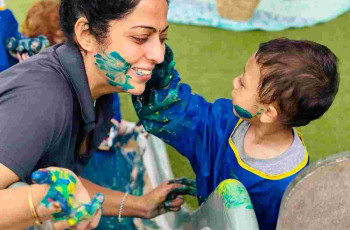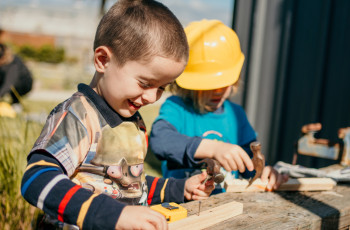
Hit enter to search or ESC to close
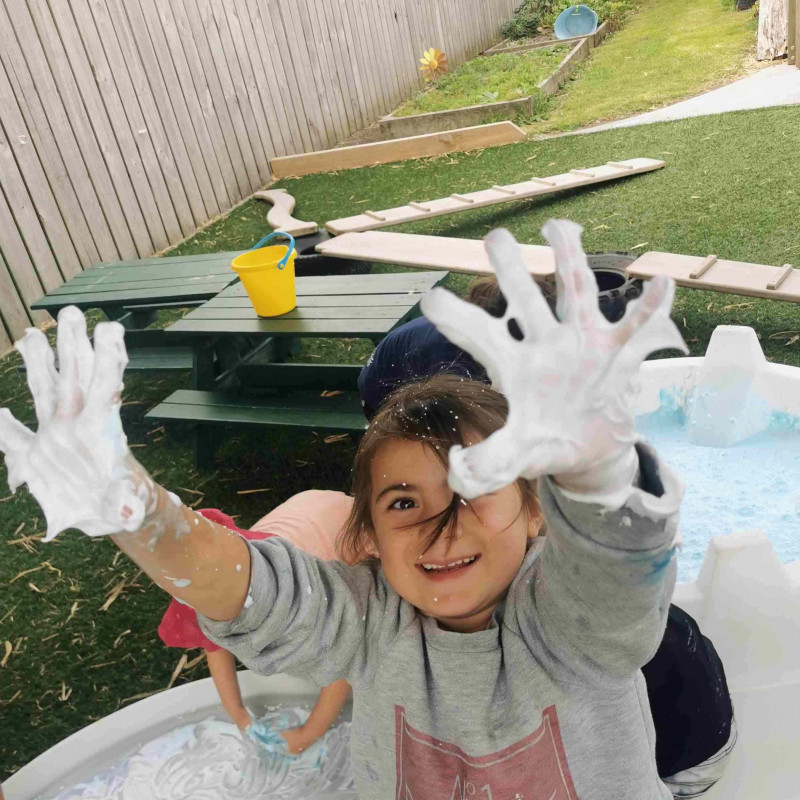
Our focus is on empowering tamariki to direct their own learning while ensuring they feel supported and safe. We have a diverse range of resources and age-appropriate materials are always utilised to encourage teachable moments and happy, learning-focused experiences. The clean, open, and inviting spaces of our centre feature a beautiful rural outlook, and our passionate teachers are always proud to show off our rooms.
Wairoa Pēpi (up to 2 years) - In our Wairoa Pēpi space, we prioritise our tamariki and their sense of belonging. Our room is designed to foster loving and trusting bonds between our infants and toddlers and their kaiako. Kaiako work closely with whānau to establish excellent routines that support each tamati and ensure their individual needs are met. We strive to create a safe and nurturing environment where relationships are at the core of everything we do. The tamariki are provided with open-ended resources that encourage them to explore, experiment, and develop their own ideas and create theories about the world around them. We also encourage our tamariki to take risks and challenge themselves, with the support of our kaiako.
Rūma Tokatoka (2-4 years) - In Tokatoka, independence is woven into all aspects of our curriculum. Our kaiako help our tamariki balance the desire to be independent and their need to be nurtured and cared for. We collaborate closely with whānau to ensure that all of our tamariki feel a strong sense of belonging. This age group are ready to explore their sense of self, whilst still needing more care than the older tamariki, therefore a focus on emerging social skills and independence makes this space. This room facilitates free-flowing play-based learning, which entices children's curiosity and encourages exploration. We highly value the process of testing, trying, and embracing challenges. Our kaiako provide unwavering support to our tamariki, enabling them to confidently take on these challenges within a safe and secure environment.
Rūma Tāne Mahuta (4-6 years) - In Tāne Mahuta Room we prepare tamariki for their next learning journey, by weaving our school readiness programme throughout all aspects of the curriculum, in a play-based meaningful way. This programme is further supported by small groups attending learning through play sessions at Dargaville Primary School a few times throughout the term. Our curriculum is designed and implemented through free play and the use of provocations to meet our tamariki current interests and learning dispositions. Areas that we encourage, and support are self-help and self-regulation skills, mathematics, literacy, name recognition and fine and gross motor development, this is woven into our play, daily routines, and daily rituals. We believe our programme is mana-enhancing and we value and try and instil confidence, self-worth, and a can-do attitude in all tamariki.
Dietitian Designed Menu
Our inhouse cook provides freshly made meals for children each day using our Nourish menus and recipes, based on the New Zealand Heart Foundation Tohu Manawa Ora | Healthy Heart Award for Early Learning Centres. We believe that through nourishing food, children are fueled to thrive physically and mentally, whilst enjoying the benefits of coming together and connecting as a group at mealtimes.
Our centre has vegetable gardens and fruit trees. These gardens help tamariki learn through hands-on activities, encourage them to work together to plant and harvest, and teach them where food comes from. They also help children develop a love for nature and care for the environment.
In the Tane Mahuta classroom (4-year-old room), children place fruit and vegetable scraps in the compost bin. Additionally, we partner with a local farmer who collects our food scraps at the end of each day to feed their pigs.
Once a week, on Thursdays, we ask whānau to provide an empty lunchbox, and we supply the food. The children fill their lunchboxes and practice eating from them, learning to ration their food instead of eating everything at once. This helps them develop important skills for their transition to school, where they will need to manage their own lunches.
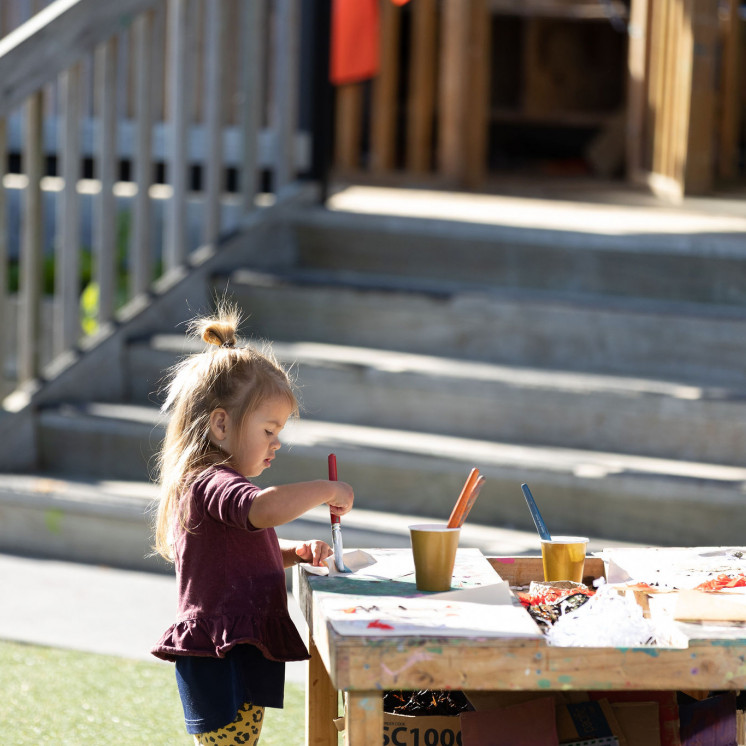
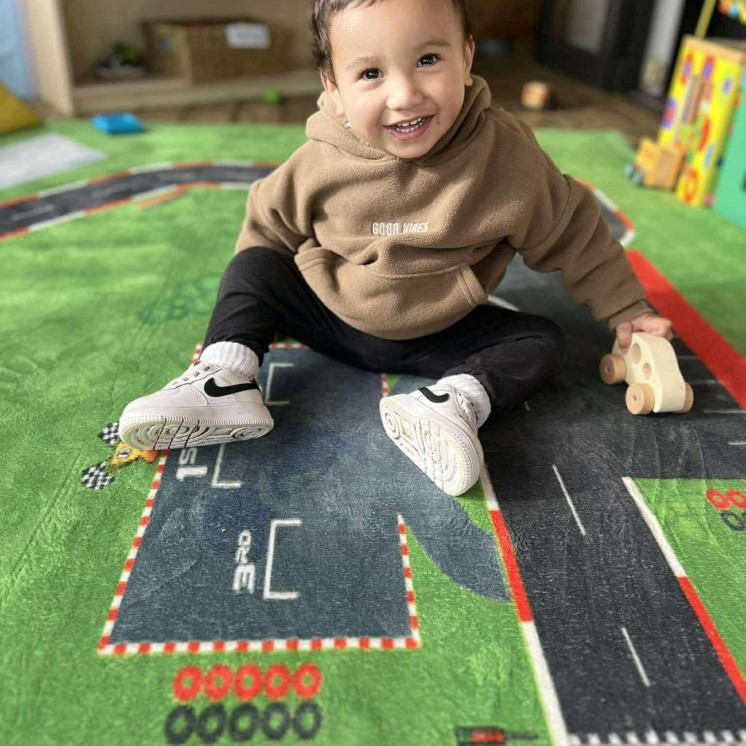
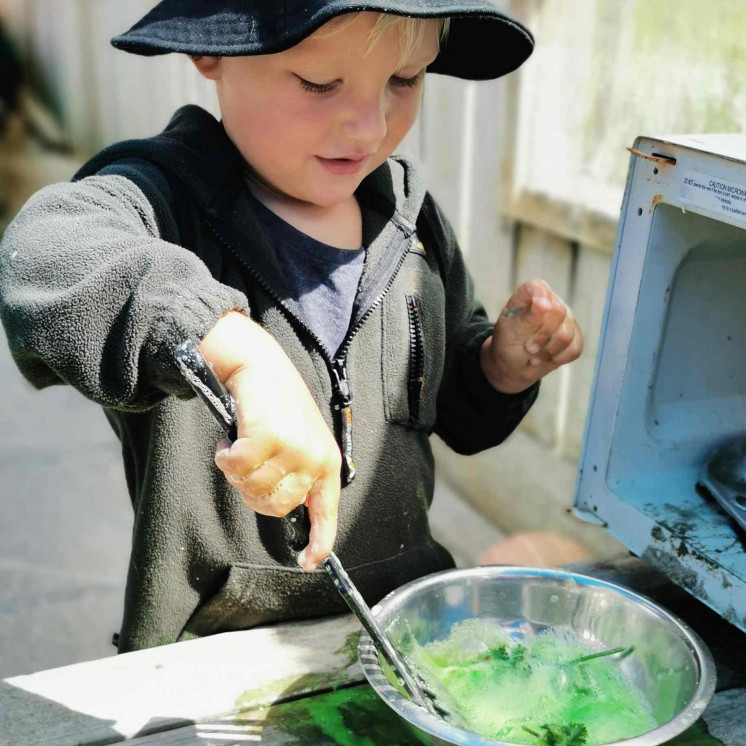
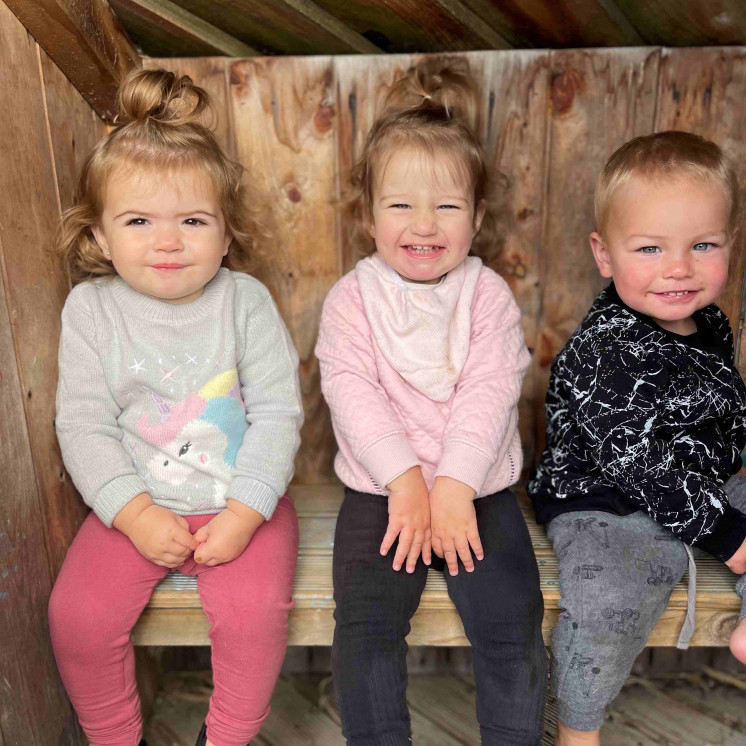
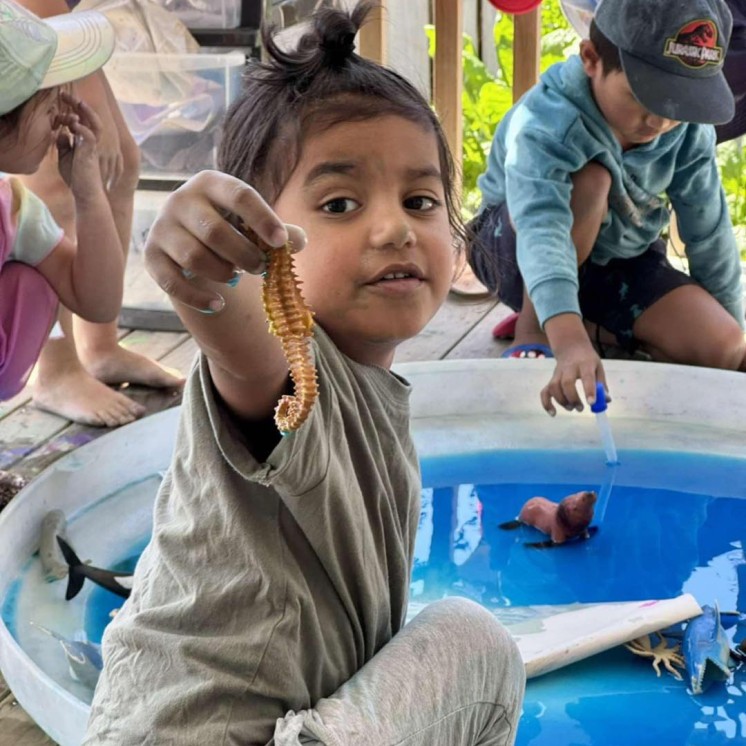
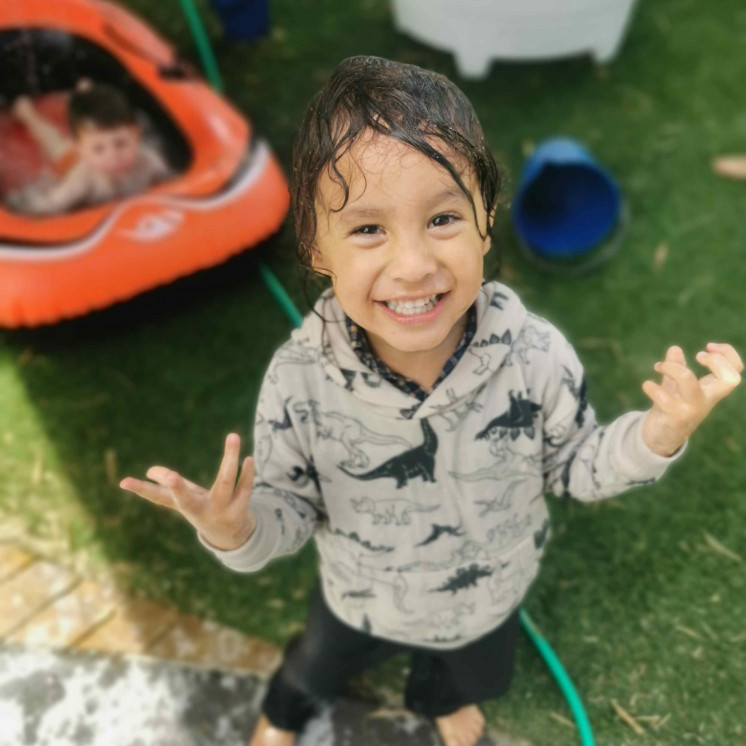
The latest buzz
Show allTestimonials






